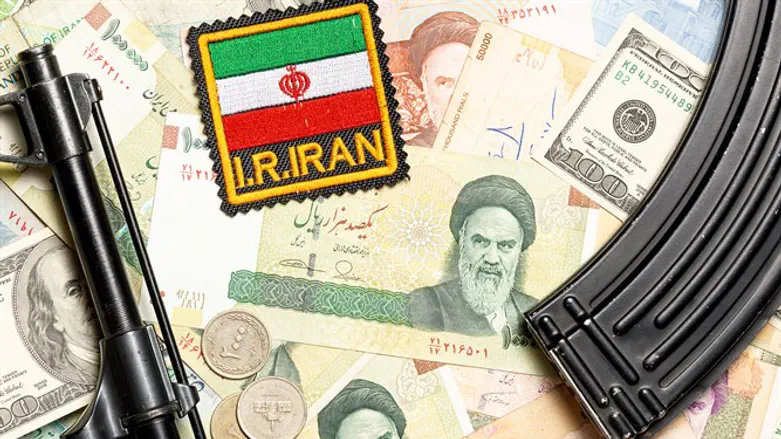
The media have been reporting incessant threats from the Iranian regime’s leadership and the mullahs’ intention to retaliate against the US. But the reality belies these threats. They are nothing more than empty rhetoric aimed at appeasing the fury of the mullahs’ allies and supporters over the successive blows they take.
Moreover, there is the effect of President Trump’s policy of harsh sanctions on the mullahs over the past two years. The wide gap between the mullahs’ threats and the reality of their highly calculated behavior is a well thought-out strategy. It is based on the patience to achieve a moral political victory without venturing into direct clash with the US side that is dominant and capable of settling any limited or all-out military conflict with the mullahs’ regime.
Since Khomeini’s 1979 revolution, it has been clear that the regime’s interests and survival take precedence over its calculus and norms. This is evidenced by many positions grounded in the principle of political taqiya, which the regime’s leaders have been judiciously applying. The regime had already faced the strong winds of American anger in 2011, when the US decided to punish Afghanistan’s Taliban for harboring Al Qaeda leaders and operatives in their country.
The same pattern of behavior was seen in 2003 during the US war against Saddam Hussein’s regime. In both cases, the mullahs provided all necessary support and facilities to the American forces for fear of enraging Washington. There is also Khomeini’s famous statement. In 1988, he accepted UN Resolution 598 on a cease-fire to end the Iran-Iraq war, comparing his gesture to drinking “a cup of poison.”
I remember very well that in mid-2003, some 127 Iranian MPs addressed a memo to Supreme Leader Ali Khamenei asking him to follow in the footsteps of his predecessor Khomeini who, against his will, accepted the said UNSC resolution. He too might have to swallow his pride “if necessary to defend the pillars of the regime and the independence of the country.”

The US military presence does not depend solely on Gulf oil needs. It must also make it possible to gain a foothold in regions that are vital for competitors...to have the leverage needed to influence the positions and policies of adversaries if needed. So, this behavior is not uncommon in mullah politics, which put the interests of the regime above all else. It is fair to say that the mullahs’ regime is basing its current escalatory positions on a strategy with long-term objectives, including the desire to push the US to take a historic decision to withdraw all its Gulf-based troops.
So, this behavior is not uncommon in mullah politics, which put the interests of the regime above all else. It is fair to say that the mullahs’ regime is basing its current escalatory positions on a strategy with long-term objectives, including the desire to push the US to take a historic decision to withdraw all its Gulf-based troops.
Such a judgment assumes that American interests are geared towards controlling oil resources and guaranteeing the security of allies, primarily Israel, as well as reducing American dependence on Gulf oil. However, other significant factors are lacking in this assessment. The US strategic edge over other players in today’s world order depends entirely on how much influence it has in economically sensitive zones for adversaries and competitors, such as the Gulf region.
The US military presence therefore does not depend solely on Gulf oil needs. It must also make it possible to gain a foothold in regions that are vital for competitors or, in other words, to have the leverage needed to influence the positions and policies of adversaries if needed.
On balance, insistent statements by the mullahs’ leaders that their goal of “expelling US forces from Iraq and the Gulf” is being realized are quite disbelievable. The latest episodes of these dreamy statements have been made by the Iranian President.
Hassan Rouhani recently claimed that “Iran’s revenge for the assassination of Qassem Soleimani will only end when the American foot in this region is cut off. Tehran will cut off Washington’s foot in this region in exchange for cutting off Qassem Soleimani’s hand.”
With vast military resources and capabilities, the US can protect its forces anywhere in the world. This means it can deploy and redeploy its forces, for example, according to procedures for protecting military personnel. But it will not pull out altogether from the Gulf region as suggested by the mullahs.
Statements of this sort sound like mere prattle reflecting the mullahs’ narrow horizon and their desire to find a way out to save face after suffering long defeats and successive blows both at home and abroad.
Here again, objectivity requires saying that the mullahs can achieve a highly crucial goal for them through this patient strategy. They will be able to keep their regime alive. This is an unspoken goal of theirs. But in the regime’s calculations, it is more significant than any other goal they pursue, such as “booting out US troops from the region” or defending the Palestinian cause.
All things considered, one can understand the statements and threats of the regime’s leaders about avenging the death of General Qassem Soleimani or nuclear scientist Mohsen Fakhrzadeh, or other events that took place in the heart of Iranian cities, with little known about the motives and identity of the protagonists.
All their alarmist rhetoric is just window dressing, buying time and sympathy, away from concrete facts or actions. The only case where this would be possible is if the fate of the mullahs’ regime was assured and not affected by any negative reaction if any of these threats were carried out. But such a case is unrealistic, given the mullahs’ isolation and the deep hostility surrounding them in Iran and elsewhere.
Dr. Salem AlKetbi is a UAE political analyst and former Federal National Council candidate